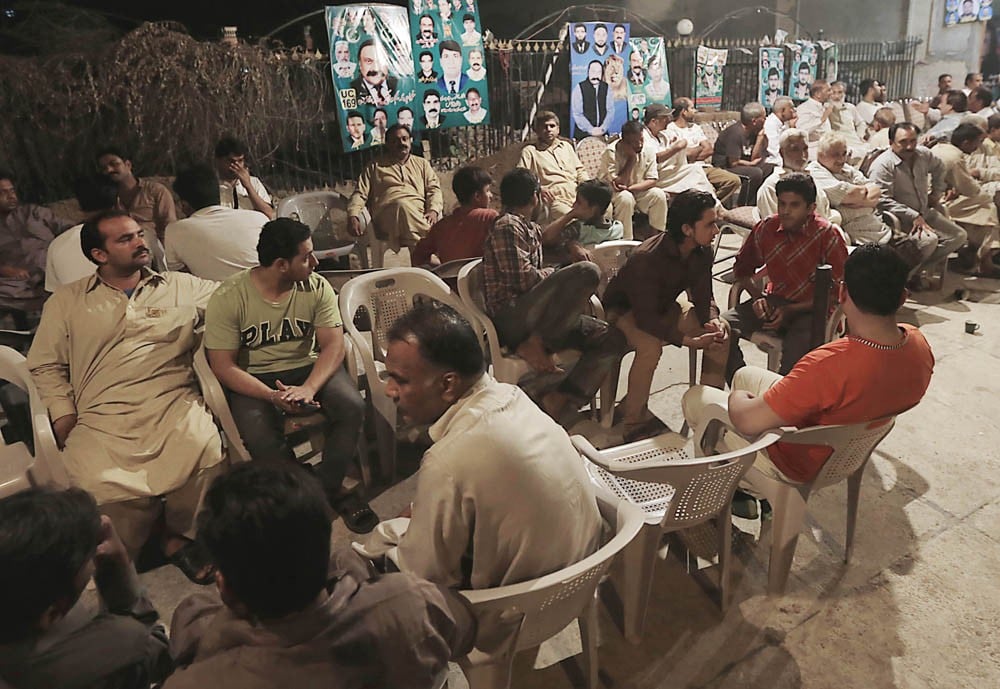
The amendments to the local bodies law in Punjab has raised many concerns

The streets of the Walled City of Lahore are adorned with posters and banners for the upcoming local bodies’ polls. Along with mainstream political parties, thousands of independent candidates are canvassing for the first phase of elections scheduled to be held on October 31.
In a city, where almost every spot and every pole is decked with posters of candidates for the elections, the recent amendments to the Punjab Local Bodies Act have raised many concerns.
Among other amendments like holding the elections in phases, delimiting constituencies of union councils and going for party-based polls, the one about holding indirect elections of all five reserved seats out of a total of 13 seats in a union council has appeared as a major concern. The opposition parties -- PTI and PML-Q -- have already moved courts against these amendments and opposed changes on the floor of the house. Civil society organisations have also shown serious concerns over the recent Punjab government amendments in the Local Bodies Act 2015, calling it "anti-democracy".
According to the Punjab Local Government (Amendment) Ordinance 2015 promulgated a few days ago, a union council shall have a directly elected chairman and a vice-chairman as joint candidates, and six councillors on general seats -- one each from a ward. These members can contest polls either on party tickets or as independent candidates.
The members on five reserved seats -- two for women and one each for minorities, peasants and youth -- would be elected indirectly by the votes of directly elected union council members. The electorate will only have two votes -- one for the panel of a chairman and vice chairman and the other for one general councillor from their respective ward. One UC has been divided into six wards.
The amendment indicates that seven elected votes of a UC would choose five other members. This means if a party or group has four out of seven members, actually, those four (majority) would be choosing five other members.
In the local government polls held in Khyber-Pakhtunkhwa and Balochistan, except for women members, there was direct election on the reserved seat and Sindh is also following the same pattern.
The government authorities term these amendments steps to ‘simplify’ the electoral procedures and make it easier and less expensive. Civil society, on the contrary, calls for direct election in all councils including union councils.
The minorities’ representatives have outrightly opposed this amendment, terming it a move to further marginalise the minority groups and keep them away from direct elections.
"The legislation on local bodies was done without broader consultation with stakeholders, particularly the civil society which has certainly caused resentment," says Peter Jacob, Director Centre for Social Justice. According to him, the religious communities had reservations about the mode of election on reserved seats for them, lest it becomes an excuse for the return of separate electorate, which was based on religious apartheid.
"I suggest that political parties should make room for elections on all reserved seats through broad-based party elections rather than filling reserved seats on mere whims of a few chosen. The individuals joining the local bodies must enjoy the confidence of the people at large and have democratic credentials," says Jacob. He terms the local bodies’ elections process totally centralised, an attempt to prevent political empowerment of marginalised groups and discourage independent candidates from contesting elections.
The first phase of local bodies polls is scheduled on October 31, second on November 19 and third phase on December 3. According to the ECP, there will be 11 municipal corporations and 460 municipal committees across the province. While there will be 35 district councils. In total, there will be a total of 7602 union councils and municipal wards.
Analyst Salman Abid says the amendment to hold indirect elections on reserved seats is contrary to fundamental rights. "The Punjab government local bodies’ model is centralised and empowers the bureaucracy, while the political parties lack seriousness in transferring power at grassroots level."
The Punjab government amended the previous local bodies act and brought an amalgam of 1979 and 2001 systems with amendments which are still going on. Eighteenth Amendment clearly urges the provinces to further devolve the power at district and local level. But the current elections are being held at the behest of the Supreme Court of Pakistan.
Analyst Rasul Bakhsh Rais thinks the simplifying of electoral procedures is good and less costly. This way one voter would have only two ballot papers -- one for joint panel of UC chairman and vice chairman and the other for one counillor in its ward. "However, it should not marginalise the minorities".